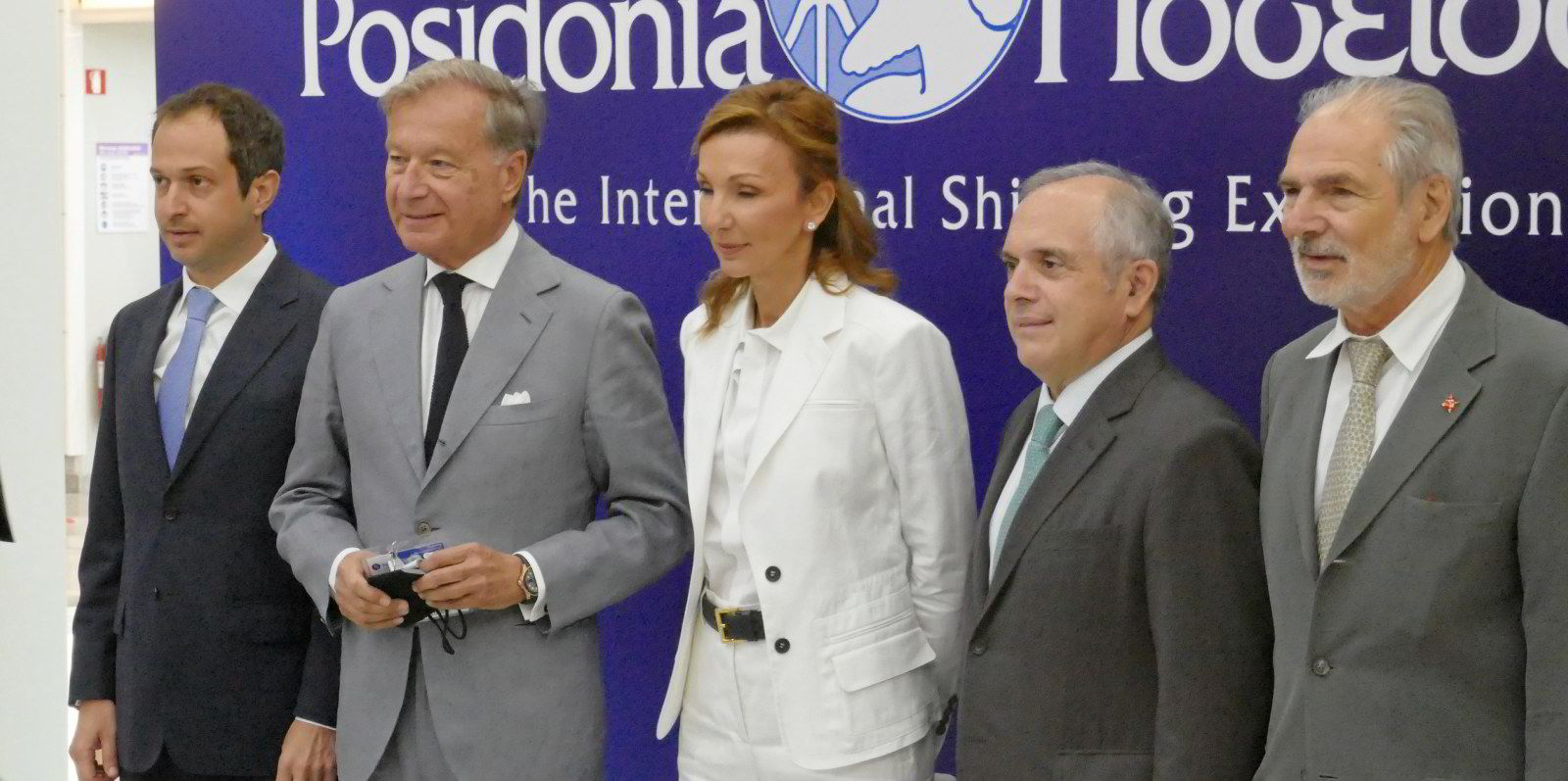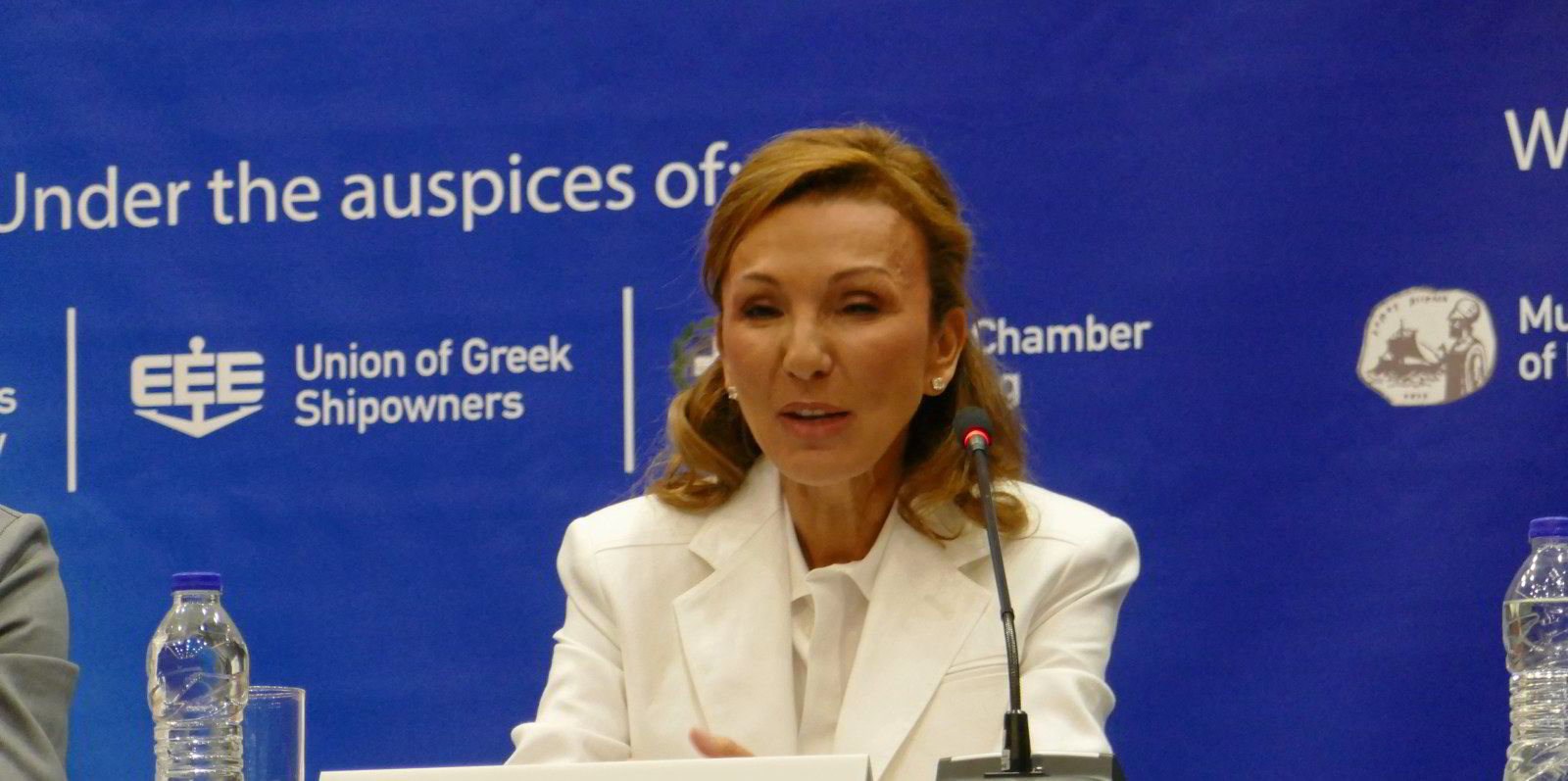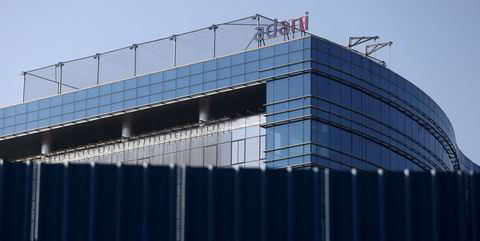Greek shipowners do nothing illegal when carrying Russian oil for now and will faithfully comply with sanctions when they kick in, the president of the Union of Greek Shipowners (UGS) said on Friday.
“Naturally, we all condemn any violent act committed — such as what is done at this moment by Russia to Ukraine — but we can’t comment on legal business transactions,” Travlos said at a press conference on the closing day of Posidonia.
“Greek shipping doesn’t do anything illegal, it hasn’t broken any embargo.
“Whenever sanctions are enforced, we’re the first to comply with them.”
Her statements came in response to criticism that Greek shipowners should self-sanction and abstain from transporting Russian oil even before European Union sanctions kick in at the end of this year.
Greek shipowners have been far less enthusiastic about publicly announcing self-sanctioning measures than peers in other European nations. Public opinion in Greece exerts much less pressure on companies to cut business ties with Russia than in northern Europe.
As a result, the share of Greek owners carrying Russian oil — which was considerable even before Russia attacked Ukraine — has increased even more since 24 February.
Whoever’s strong is in the limelight
The EU has recently decided to ban imports of seaborne Russian oil into the bloc, with a transition period of six months.
Major Greek owners speaking at Posidonia this week have openly questioned the wisdom of sanctions against Russian oil, or at least the way they are being implemented. Shipowners argue that sanctions ultimately hurt European consumers more than Russian finances.
Speaking to TradeWinds on Monday, a senior EU transport official rejected the criticism.
Travlos said it is natural for Greek owners to be at the centre of attention in this matter, given their pre-eminent position in global shipping.
“Whoever is powerful is always in the limelight,” Travlos said.

Objections by EU maritime nations such as Greece, Cyprus and Malta have already helped sway European sanctions policy in some respects.
An initial proposal by the European Commission to ban EU-flagged ships from carrying Russian oil to third countries was dropped, for fear of a causing a massive flight out of EU flags.
Supporting net-zero by 2050
Asked to comment on ongoing carbon emission talks at the International Maritime Organization (IMO), the UGS expressed support for proposals to introduce a net-zero CO2 target by 2050.
“That’s the position of the International Chamber of Shipping [ICS] and that’s what our union defends as well, very clearly,” said Dimitris Fafalios, member of the UGS board and president of the international dry bulk owners’ association Intercargo.
However, Travlos added some scepticism to any debate on firm targets.
“We Greeks support decarbonisation tomorrow — now, what’s feasible, viable and safe is a different story,” she said.
The statements come as the IMO’s Marine Environment Protection Committee (MEPC) wraps up a meeting that has been debating raising the IMO’s level of ambition from halving greenhouse gas emissions by 2050 to targeting zero emissions by that date.
The zero-emission target is backed by IMO heavyweights Japan, the UK, the US and the EU.
As earlier reported by TradeWinds, some developing countries, including Argentina, Brazil, China and the United Arab Emirates, are urging caution over the raised targets.
Speaking to TradeWinds on Wednesday, Cyprus’s deputy shipping minister Vassilios Demetriades said the EU should take heed of the positions of developing nations to reach a compromised global solution.




